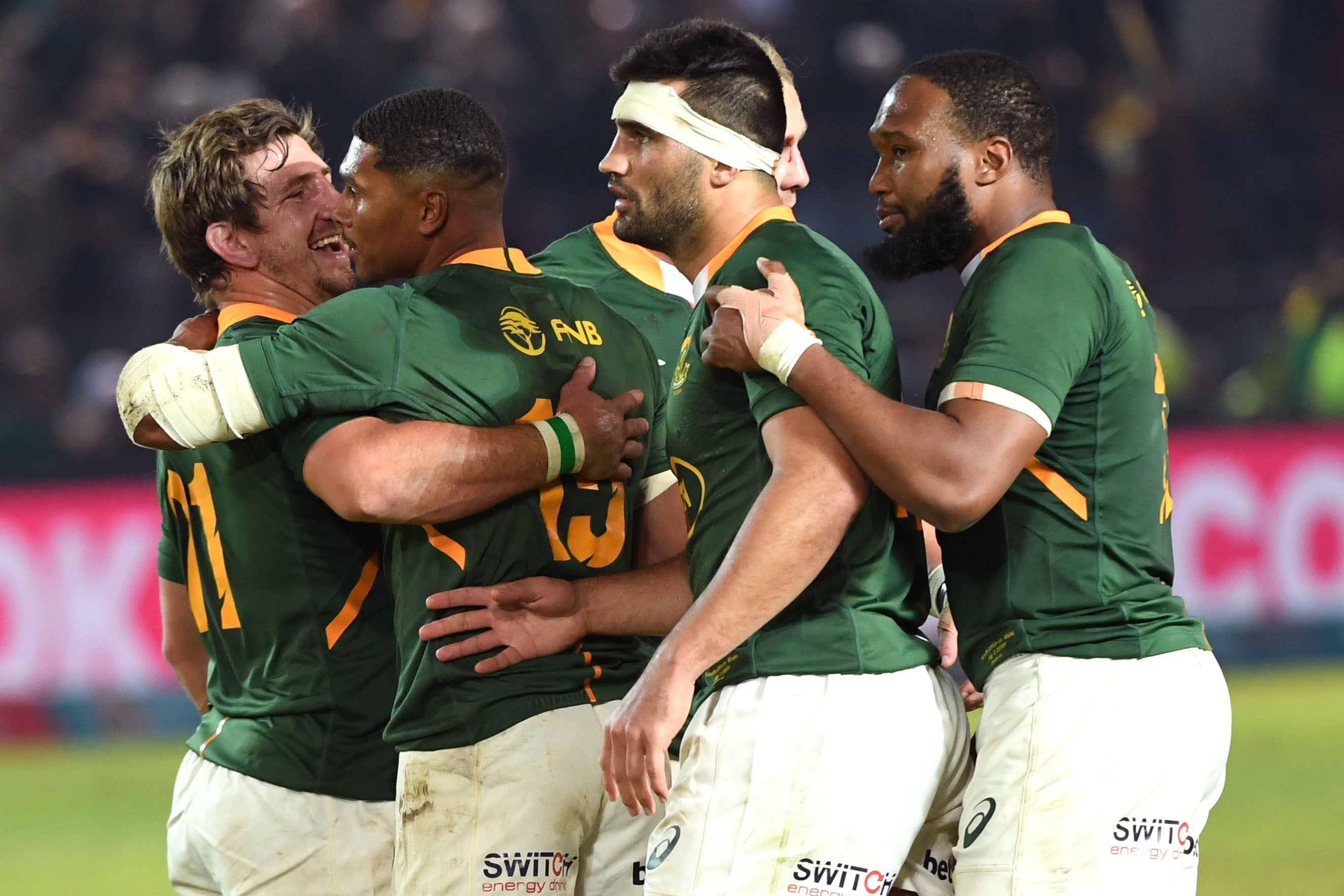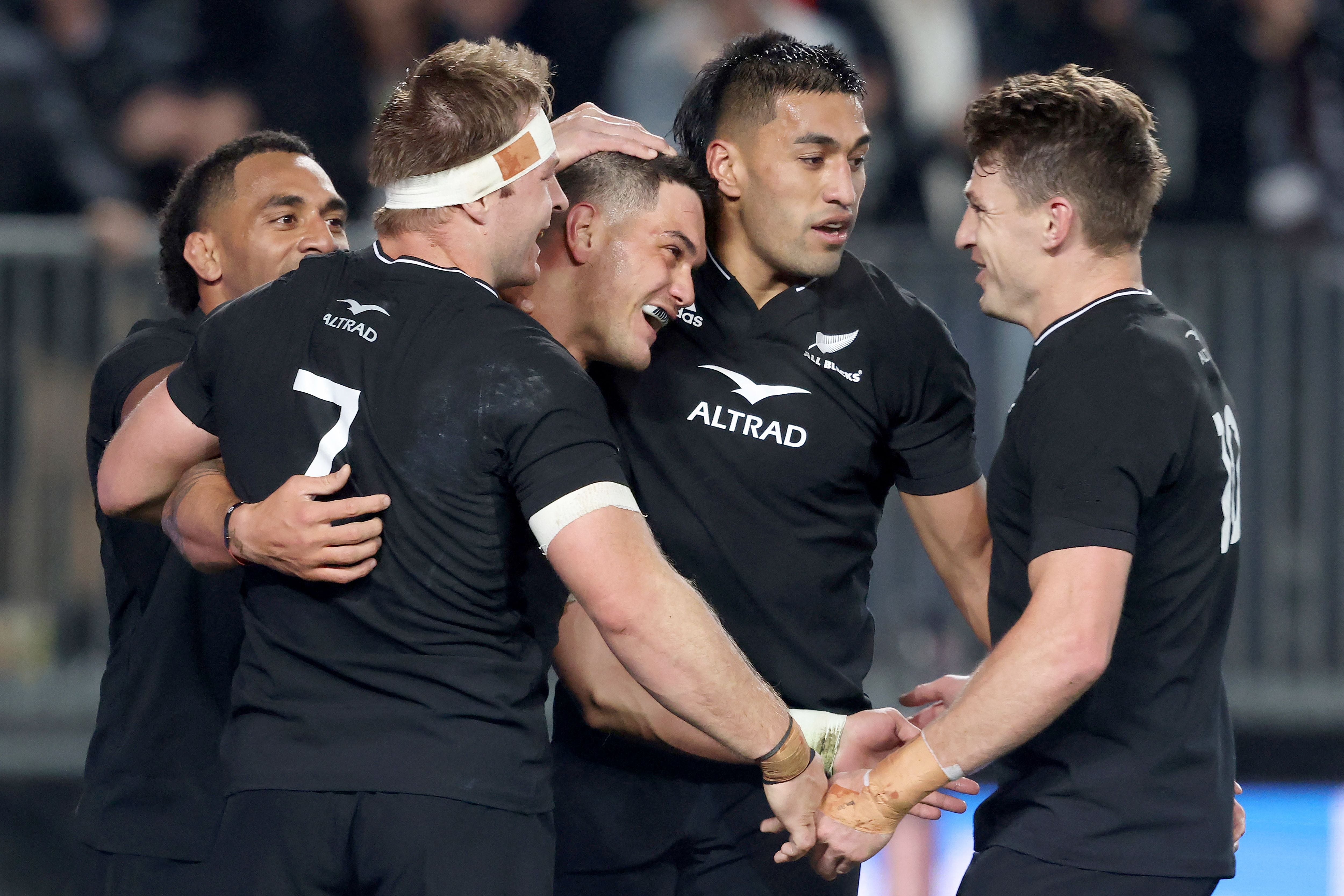England’s current failings under Eddie Jones are concerningly familiar
Individual errors and a lack of ruthlessness cost England in a poor defeat Down Under

At the very least, Eddie Jones has found some form of consistency. For a second game in a row, his side found themselves a man to the good after the first half sending off of an Australian lock – and just as against the Barbarians at Twickenham, England were well beaten at full-time.
The veneer of respectability provided by Henry Arundell and Jack van Poortvliet’s late scores will not distract from a disjointed England performance, the sort that is beginning to look habitual. Even with collision dominance and set-piece supremacy for large periods, England wilted in the final quarter, relinquishing a game they will reflect they should have won.
So much had gone wrong for Australia. Dave Rennie lost his starting fly-half moments before kick-off; by the end of the first half, a full-back, tight-head and second row had been lost to the Wallabies, too. Rennie’s side deserve tremendous credit for the manner in which they adapted and found clarity amid the adversity, but England, with so much falling right, once again failed to take the initiative – reducing Jones to recognisable refrain.
“We put ourselves in a position to win the game but we just weren’t quite good enough on the day to do that,” Jones said after Australia’s first win over his England.
“We had opportunities to put pressure on them and we just let them off at various stages. We led 14-9 and in the first half, we probably should have been ahead by a number of points and we weren’t. And those sort of things, they come back to bite you.”
Australia were imperfect and second-best for good spells but clung on gamely to their opponents, pouncing on England’s breakdown vulnerabilities, and taking their opportunities emphatically. It was clear in the way they closed out the contest, eschewing any thought of seeing out the remaining five minutes up 23-14 and instead proactively seeking the final blow.
Noah Lolesio had played largely in a passive manner after his late call-up to the starting side, but recognised the chance to twice attack the line in the movement, creating the chance that eventually ended with Pete Samu’s matador step and match-sealing score.
“I thought the boys did some fantastic problem-solving out on the park and to get our nose in front by 16 [points] late in the piece was impressive,” Rennie said.
“We’ve been in this position before. The great thing about our group is there’s no panic, we’ve got some great leaders out there.”
It spoke to a ruthlessness that England lacked. The decision, for example, to kick for goal at 11-9 up with clear forward supremacy and a man advantage showed a team short of that killer edge. The direction provided by the outstanding Samu Kerevi equally stood in contrast to England’s muddled approach.
It is much too soon to make sweeping conclusions about Marcus Smith and Owen Farrell, who made only a second start together, but each seemed inhibited by the other. There were only two clear line breaks created until Arundell and van Poortvliet’s late tries, a wagging tail providing a futile flourish after another decisive collapse. The ruck detail and decision-making clarity are some way short of where they need to be to make Martin Gleeson’s complex attack function fully.
If, as hooker Jamie George intimated on the BBC’s Rugby Union Weekly podcast after the defeat, the messaging from the sidelines is being undermined by individual errors on the pitch, what does that say about a selected side containing so much experience? Jones has preached that he is cultivating a player-led environment, but his squad’s apparent anxiety under either scoreboard or territorial pressure suggests a need for clearer direction.
England will mull changes next Saturday, though continuity would be wise in the search for elusive cohesion. Jonny Hill has escaped a citing for his unedifying, repeated provocation of the headstrong Darcy Swain, but a failed half-time head injury assessment could well rule out Tom Curry.
On, then, to Brisbane, which has provided solace for under-fire England coaches before. Little seemed to be going right for Martin Johnson in 2010 when a meandering English side turned up in the River City and dropped Jonny Wilkinson. An improved performance brought a much-needed narrow victory that briefly revitalised Johnson’s tenure. How Jones must hope for something similarly restorative - England’s current failings are becoming rather familiar.

South Africa 32-29 Wales
There were great pangs of disappointment for Wales after Damian Willemse’s late heartbreaker denied them a first-ever win in South Africa. In terms of game-plan execution, Wayne Pivac’s side could hardly have gone any better, standing up to the Springboks’ physicality and taking their chances early, stalling the comeback and keeping themselves ahead. Dan Biggar and his side riled the South Africans, knocking them firmly off their game.
From the low of the Italy loss, a draw would have represented a huge step forward, and though heartened by the performance, Pivac appeared to recognise a chance missed at full-time. Might Tomos Williams reflect he should have kept hold of the ball rather than kicking it away with less than 60 seconds left?
Backing up that sort of backs-against-the-wall approach again next week will be tough. South Africa will surely call in the steadier head of Handre Pollard at fly-half, and may also refresh their pack.

New Zealand 42-19 Ireland
Reports of the All Blacks’ demise appear exaggerated. This was classic New Zealand, repelling Ireland’s early surge and then striking so brilliantly and efficiently as Ireland lost their composure in a second-quarter blitz. To credit Andy Farrell’s team, there was a reset after the half-time interval, but by then the game, and Johnny Sexton, had been lost.
Sexton’s availability next weekend is in question. A failed in-game head injury assessment ended his evening and, under the 12-day concussion stand down rules recently brought in by World Rugby, would have ruled him out of the second Test, but the Ireland captain passed a subsequent assessment after the full-time whistle. Given his brain injury history, it would make sense to be cautious with Sexton, and Farrell could find out plenty about Joey Carbery by trusting him with a start.





Join our commenting forum
Join thought-provoking conversations, follow other Independent readers and see their replies
Comments